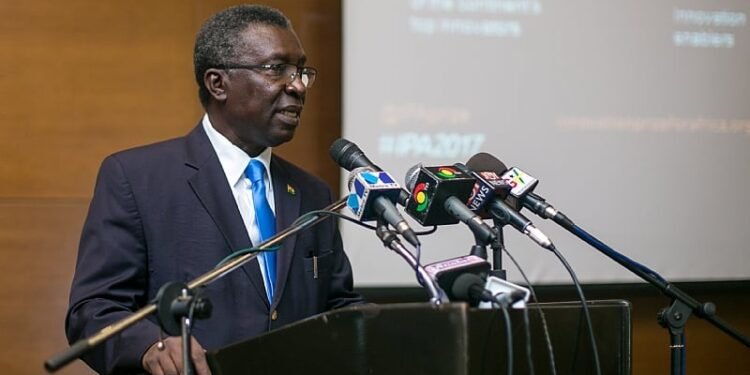Energy strategist, Dr Yussif Sulemana, has called for a voluminous dispatch of petroleum product into the country, under Ghana’s gold swap for oil policy.
According to him, the government needs a greater quantity of the product to necessarily impact the petroleum market. He revealed that the first consignment of 40,000 metric tonnes of fuel delivered by SCF YENISEI will not be ample for nationwide consumption.
“At the end of the day, the petroleum product and gold deal, we need to get it in quantums that can impact the market. At the moment, what is in cannot do that much. We have to engage the team players. We don’t have to disrupt the systems that we have already [in place]. I believe a lot of consultation have gone on between the BDCs and government to make sure we don’t disrupt the smooth operations of our downstream…”
Dr Yussif Sulemana
Dr Sulemana indicated that the petroleum product received into the country will at most last for four days. This, he explained, is because the nation’s consumption on monthly basis is about 250, 000 metric tonnes, which the 40,000 metric tonnes is just a drop in the ocean and will not suffice.
That notwithstanding, he indicated that government has made plans for more of such products in the coming days which he reckons will help.
“The other thing we have to be careful about is the fact that at least what was displayed at the pumps this morning, I am not too please. I got scared when I went to buy fuel and I noticed that it’s almost GHC14 again. So, I asked myself what is the dollar rate that our BDCs are using to do this computation. However, it all boils down to the fluctuation; sometimes they have to do forward pricing [and] unfortunately the consumer gets hit in this process.”
Dr Yussif Sulemana
Cedi depreciation causes fuel prices hikes
Commenting on whether Bulk Distributing Companies (BDCs) should expect further hikes in fuel prices due to cedi depreciation, Dr Sulemana underscored that it is inevitable. He highlighted that the cedi depreciation is actually the cause of the upward adjustment at the pumps.
The energy strategist highlighted that considering the dynamics of the market, the supply and demand of the US dollar is causing the rapid fluctuations of fuel prices at the pumps. He however noted that the situation on the international front when it comes to oil prices for the last three months have been relatively stable.
‘So, it is only our cedi depreciation that is causing this dynamics. So, government has to take serious action on this and it’s a fact that if action is not taken, whatever that got the cedi stabilized, however brief it was, we have to revisit that and see whether that was sustainable or not. Other than that, we might go back to those days again unfortunately.’
Dr Yussif Sulemana
Dr Sulemana subsequently called for collaborative engagement between government and the bulk distributing companies on the first consignment of the gold for oil policy. He emphasized that these BDCs are key players in the petroleum sector and must be involved in some key decision made.
“I’m saying that because marketers have to be assured that their businesses are not going to be impacted with this novelty program that we want to implement.”
Dr Yussif Sulemana
Dr Sulemana emphasized that lack of engagement between government and BDCs could potentially have “unintended consequences”. By this, he explained that the unintended consequences will cause disruptions in the market and the way government can cure that is through engagement.
“I believe that government will engage them. If the government hasn’t done that, I think the government must do that as soon as possible… Yes, they could bypass them but I don’t think that’s the way to go… They have to distribute the product to them equitably. The idea of the whole deal is bring down the cost of the product at the pumps or to minimize the depreciation. So, if all the other players are not involved when all these products can be distributed to all the outfits, then I think the policy will be defeated.”
Dr Yussif Sulemana
READ ALSO: National Policy Framework On Precision Quality Has Been Institutionalized- Deputy General Of NDPC























